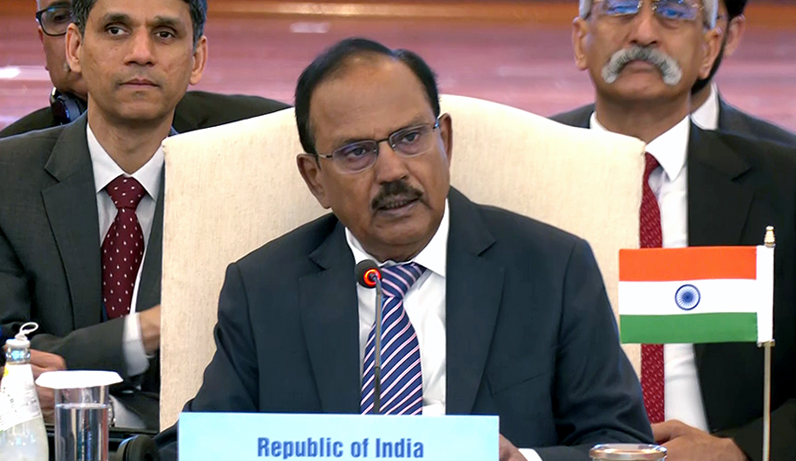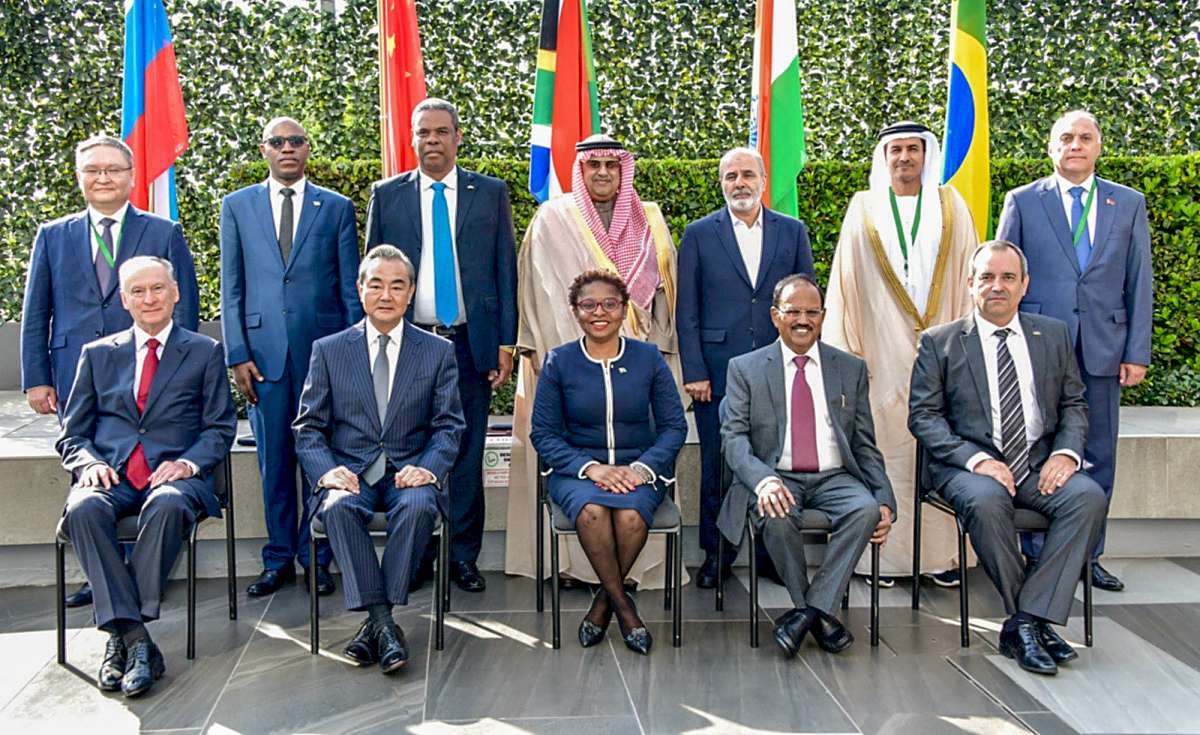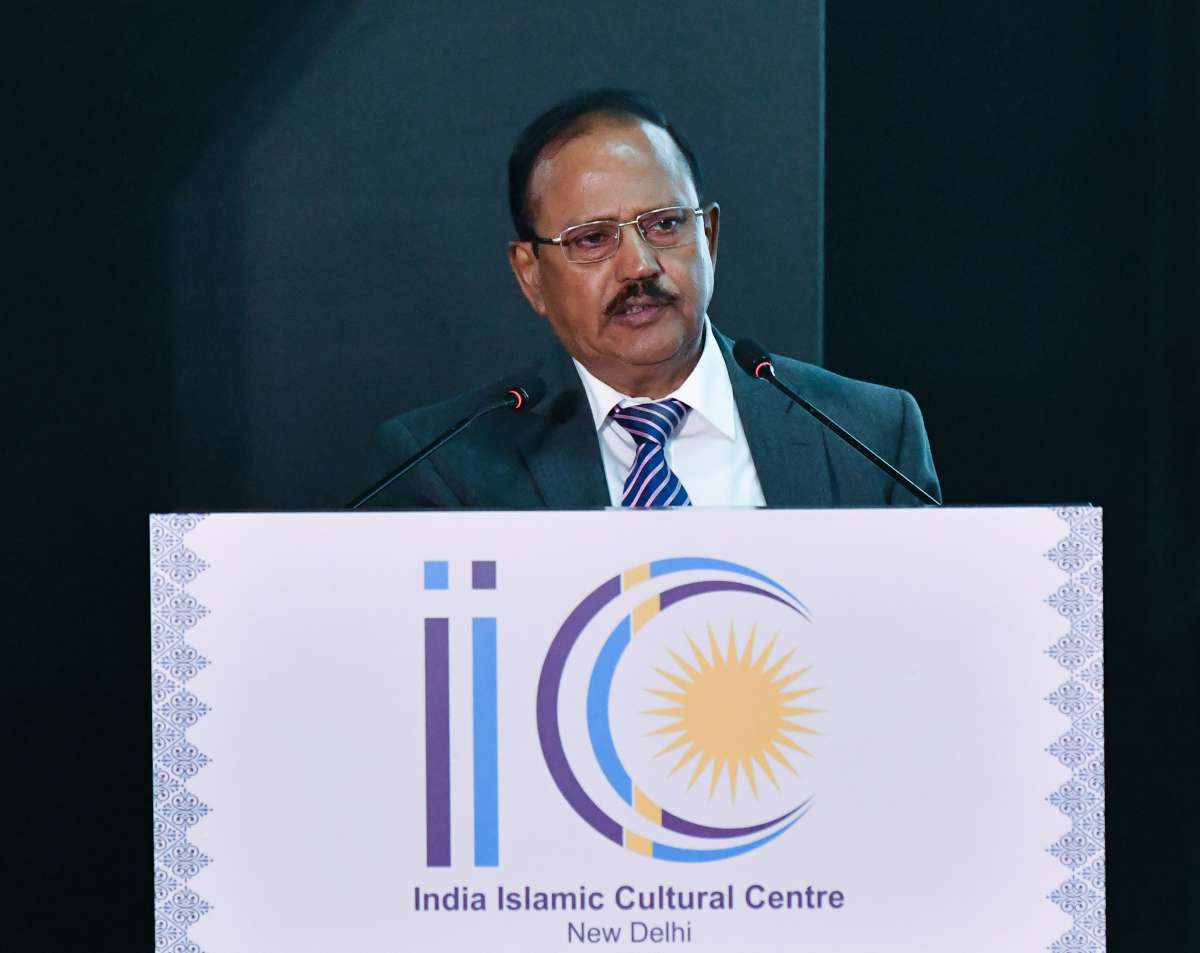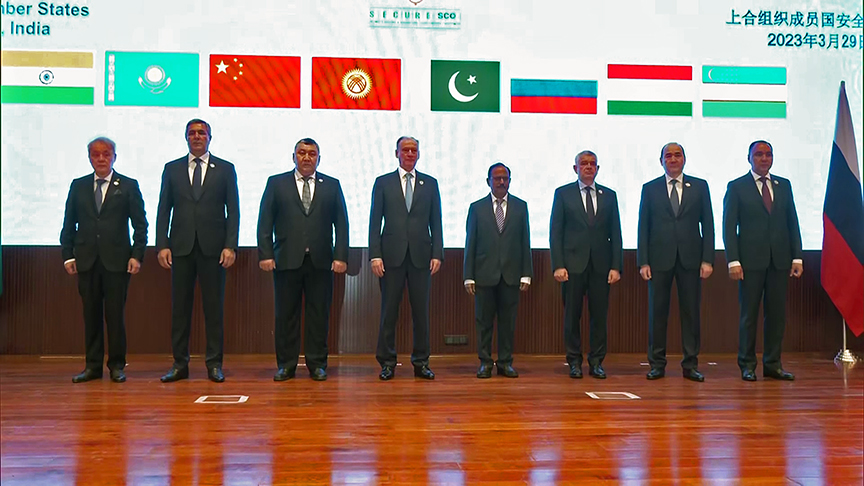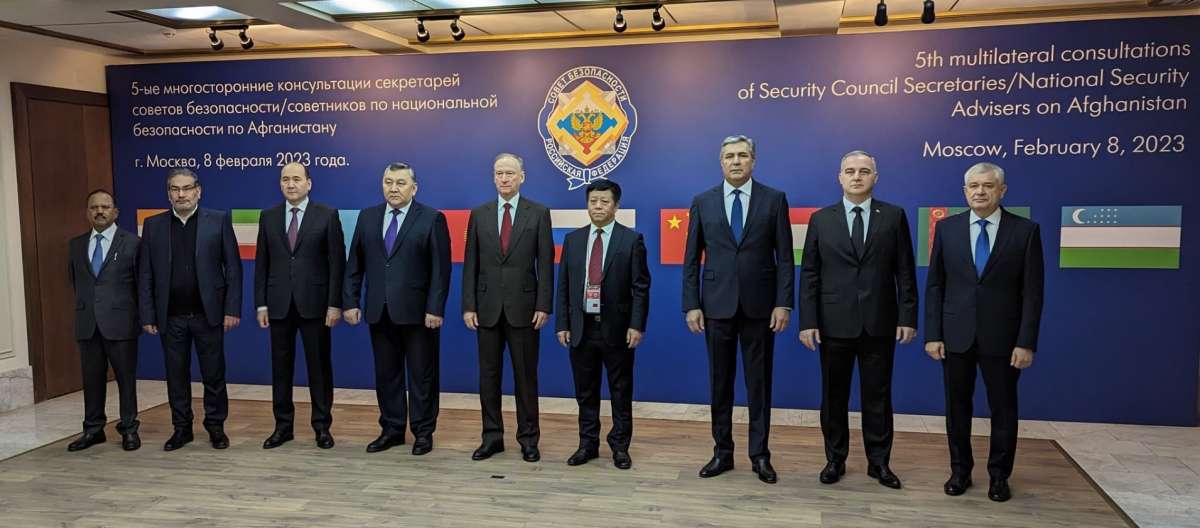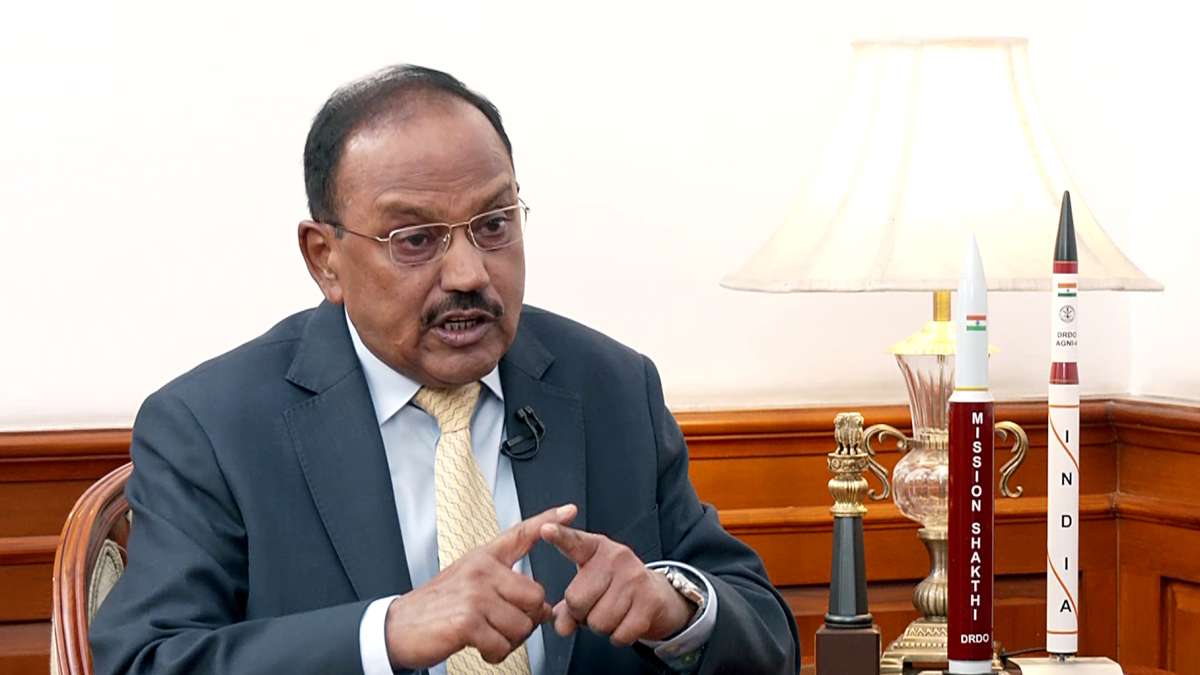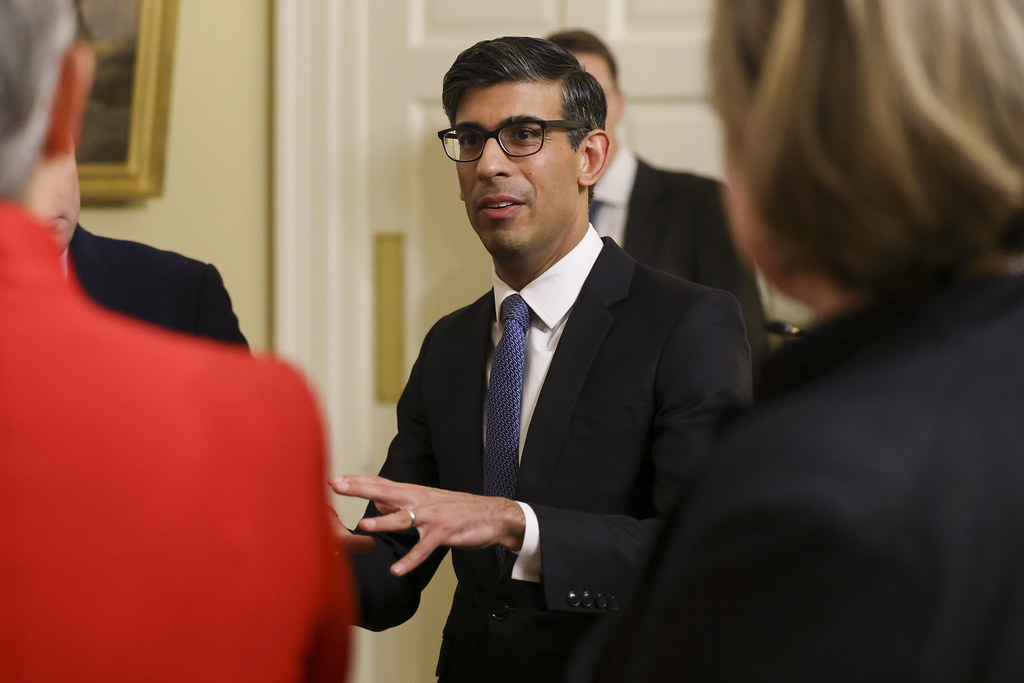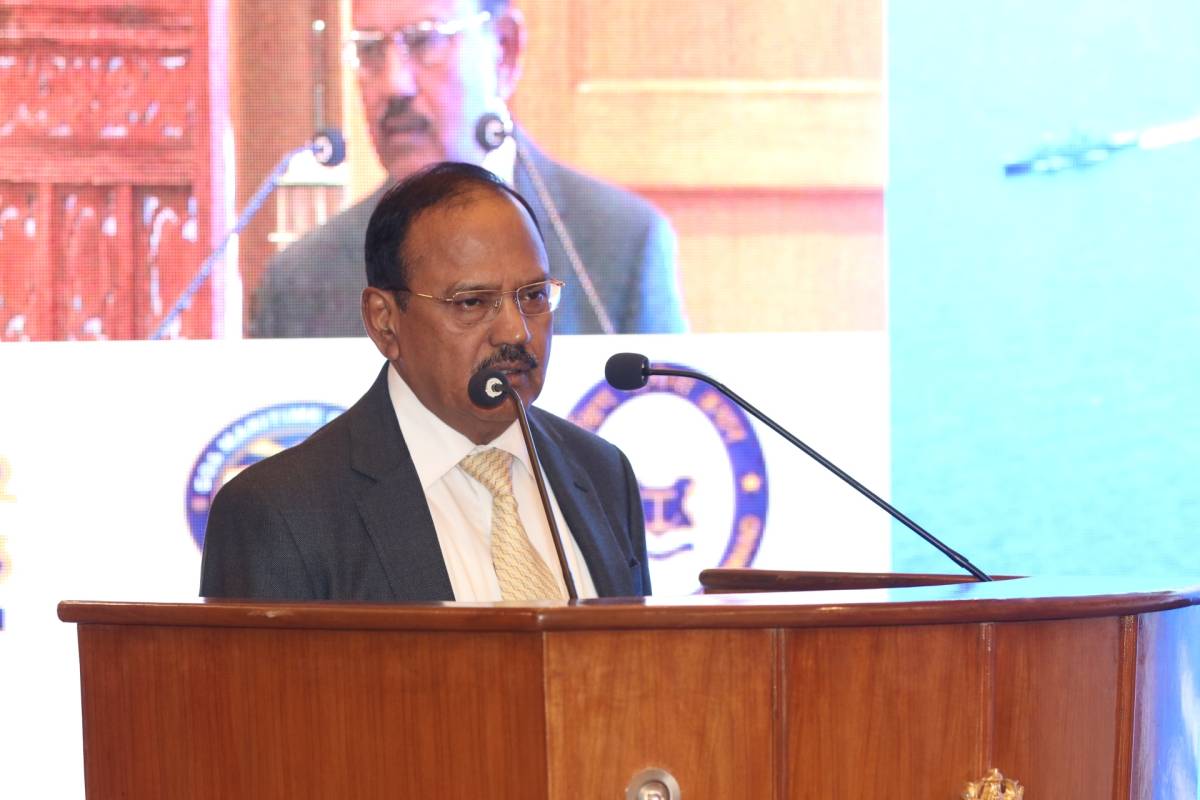The NSA meeting on Ukraine is being organised in the coastal city of Jeddah to discuss Ukrainian President Volodymyr Zelenskyy’s plan for peace amid the ongoing conflict with Russia…reports Asian Lite News
National Security Advisor (NSA) Ajit Doval on Saturday said India remains an active, willing partner to find a lasting, comprehensive solution to the Russia-Ukraine conflict.
NSA Doval on Saturday arrived in Jeddah to participate in a summit of national security advisers and other officials being hosted by Saudi Arabia to discuss the ongoing Russia-Ukraine conflict.
The NSA during the meeting said India has regularly engaged both Russia and Ukraine since the beginning of the conflict at the highest levels. He said the country supports the global order based on principles enshrined in UN Charter and international law. “Respect for sovereignty and territorial integrity by all states must be upheld without exception,” he said, according to sources.
As per the NSA, all peace efforts involving all stakeholders must be pursued to find a just and enduring solution to the conflict.
He said the whole world and especially Global South is bearing the brunt of the situation. India is providing both humanitarian assistance to Ukraine and economic assistance to its neighbours in Global South.
India’s approach to the Russia-Ukraine conflict has been and always will be to promote dialogue and diplomacy. This is the only way forward for peace, the NSA said.
The meeting confronts a two-fold challenge – resolution of the situation and softening the consequences of the conflict. “Efforts must be directed on both fronts simultaneously and much more groundwork is needed to ensure this,” the NSA said, as per sources. Currently, several peace proposals have been put forward. Each has some positive points but none is acceptable to both sides. The key question that needs to be addressed in the meeting is whether a solution that is acceptable to all relevant stakeholders can be found. Doval was on Saturday welcomed at the Jeddah Airport by the Indian Ambassador to Saudi Arabia, Suhel Khan and Consul General Mohammed Shahid Alam.
“Shri Ajit Doval, NSA arrived in Jeddah to take part in National Security Advisors’ meeting on Ukraine. He was welcomed at Jeddah Airport by Ambassador Dr Suhel Khan and Consul General Mohd Shahid Alam,” the Indian Embassy in Riyadh said on Twitter. The NSA meeting on Ukraine is being organised in the coastal city of Jeddah to discuss Ukrainian President Volodymyr Zelenskyy’s plan for peace amid the ongoing conflict with Russia.
The Ministry of External Affairs on Friday confirmed India’s participation in the summit. “India will participate in this event and our participation is in consonance with our long-standing position that dialogue and diplomacy is the way forward,” said MEA spokesperson Arindam Bagchi. “Yes, India has been invited to a meeting being hosted by Saudi Arabia on Ukraine in Jeddah,” Bagchi said while replying to a question at a press briefing of the Ministry of External Affairs.
Russia’s state-run Tass news agency reported Kremlin spokesperson Dmitri Peskov as saying: “Russia will keep an eye on this meeting” but would need “to fully understand what goals are being set.”
ALSO READ-Pakistan sets aside bilateral tensions, joins World Cup in India

